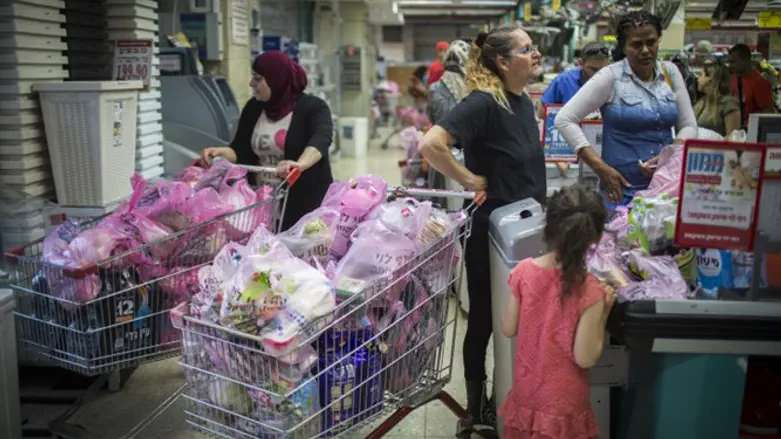
Shoppers line up in front of supermarkets, then rush inside like a human tidal wave once the doors finally open, snatching up as much toilet paper as they can. Citizens hawking face masks for 100 shekels apiece on the black market. We’ve all seen the news about how the Coronavirus is impacting Israel and the world, and much has been reported about panic buying and shortages of items like hand sanitizer and disposable gloves.
But most people are not aware of the massive impact panic buying has on the special needs community. While we are encouraged by Prime Minister Netanyahu telling citizens that there’s no need to storm the supermarkets, we are still concerned about how panic buying will affect the availability of supplies that we need to help the most vulnerable.
The impact of the coronavirus pandemic on the special needs community is huge. The pressures are especially felt by those who work with at-risk, medically vulnerable populations. We are retraining all of our staff, empowering them with the tools they need so that all Ministry of Health guidelines are followed to the highest degree.
But there may come a time when we will need to make tough decisions. Our organization’s entire philosophy is based on community integration of people with special needs and ensuring that our residents maintain close ties with their families, but we are now transitioning to a significantly less social model. As the situation progresses, it may be that we must adopt a policy of total isolation.
While all of society is on high alert, the special needs community faces unique challenges during this pandemic. We’ve seen what’s happened at the Nofim Tower assisted living facility and are taking every precaution to avoid a similar situation. At Alei Siach, our residential care apartments are limited to 6 residents maximum, so we’re in a much better position than organizations with dense residential communities. However, the threat of coronavirus is still in the forefront of our minds. We must take steps to protect our clients’ health and safety, as many of our residents have chronic medical issues and preexisting conditions.
As many Israelis flouted the new rules set forth by the Ministry of Health by heading to local parks and beaches, as well as gathering at outdoor cafes, Prime Minister Netanyahu admonished the public and warned that if this behavior continued, the country would be forced to transition to a total lockdown.

As a haredi Rabbi, the Director of a nonprofit organization serving the special needs community, and a human being, I implore the public to fully adhere to the lifesaving guidelines set forth by the Ministry of Health
This type of total lockdown would be especially hard on the special needs community. Alei Siach, for example, has 75 apartments that house 350 residents with disabilities, who have varying levels of ability to care for themselves. Some of our apartments function almost autonomously, with occasional check-ins by counselors, but many of our residents require full-time care. We don’t know how a full lockdown situation would affect things like shift changes between caregivers and frequency of family visits - this could prove to be a huge challenge for many residential care providers.
As a haredi Rabbi, the Director of a nonprofit organization serving the special needs community, and a human being, I implore the public to fully adhere to the lifesaving guidelines set forth by the Ministry of Health. Our actions today don’t just affect the present. They will determine our shared legacy for generations to come.
Rabbi Chaim Perkal is the Director and Founder of Alei Siach, a Jerusalem-based nonprofit organization providing all-inclusive solutions for people living with special needs and their families.
